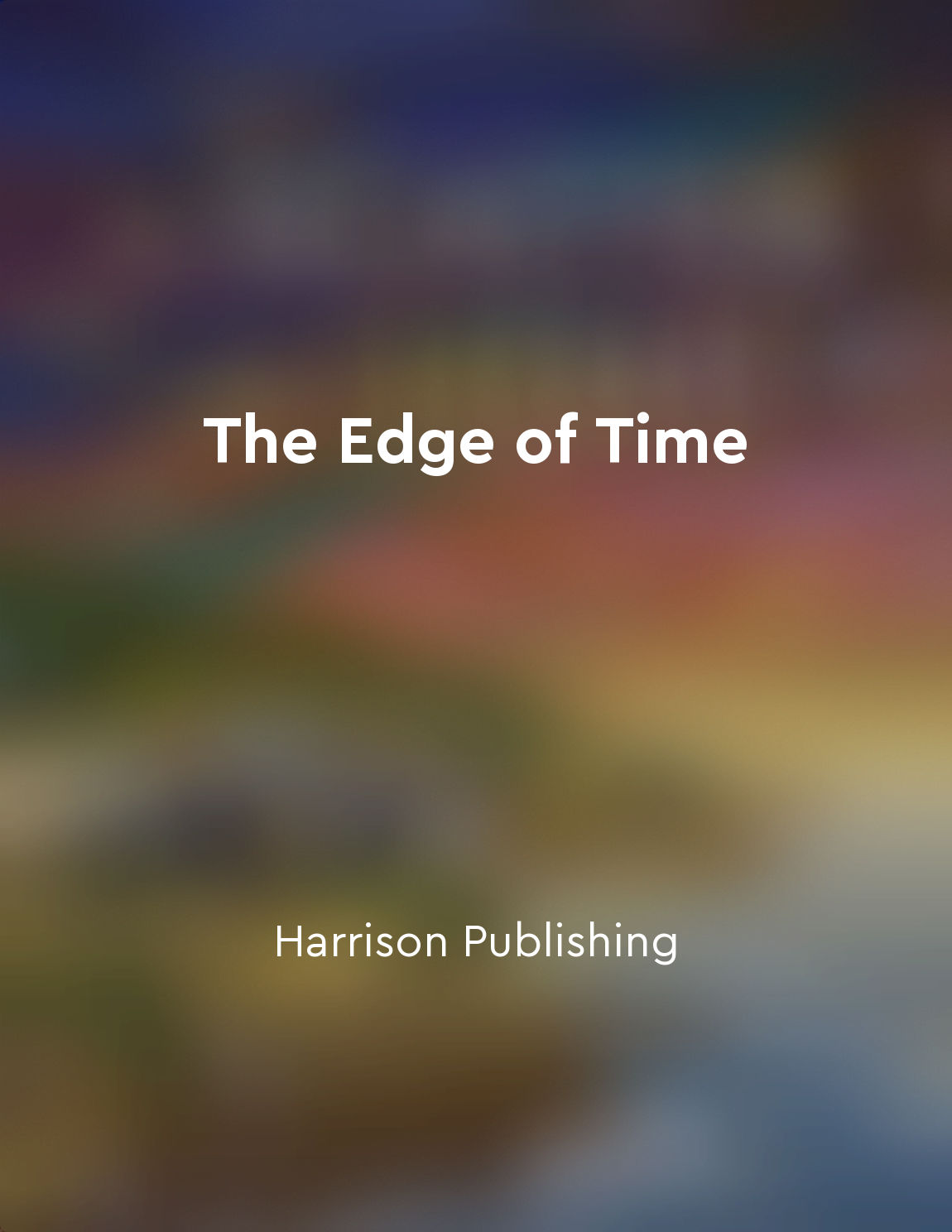Audio available in app
Time is influenced by the observer's perspective from "summary" of The Order of Time by Carlo Rovelli
In the realm of physics, time is not an absolute entity that flows uniformly for everyone. Rather, it is a flexible and malleable concept that is influenced by the observer's perspective. This means that time can be perceived differently depending on one's position, velocity, and gravitational field. As physicist Albert Einstein famously theorized, time is relative and can be stretched or compressed depending on these factors. When two observers are moving relative to each other, they will experience time differently. This phenomenon, known as time dilation, occurs because the speed at which time flows is not constant for all observers. For example, if one observer is traveling close to the speed of light while another is at rest, the moving observer will perceive time to be passing more slowly compared to the stationary observer. This discrepancy in the passage of time is a fundamental aspect of Einstein's theory of relativity. Furthermore, gravity also plays a significant role in shaping our perception of time. According to the theory of general relativity, massive objects like planets and stars can warp the fabric of spacetime, causing time to move more slowly in their presence. This effect, known as gravitational time dilation, means that time flows differently at different points in space depending on the strength of the gravitational field.- Our understanding of time is not fixed or universal but rather dependent on our frame of reference. This idea challenges the traditional notion of time as a linear and objective concept and instead presents it as a dynamic and subjective experience. By acknowledging the influence of the observer's perspective on the perception of time, we can gain a deeper insight into the nature of reality and the interconnectedness of the universe.
Similar Posts
Science and religion can coexist harmoniously
The conflict between science and religion has been a long-standing issue that has puzzled many minds throughout history. Some s...
Phenomenological description reveals the structure of consciousness
Phenomenological description is the method through which we can come to understand the structure of consciousness. By carefully...

Space holds secrets
The vast expanse of space is a realm filled with mysteries waiting to be unraveled. From the twinkling stars in the night sky t...
Humans have always sought to understand the world
Since the earliest days of civilization, humans have been driven by an insatiable curiosity to make sense of the world around t...
Challenging conventional wisdom in science
Abraham Pais delves into the intricate world of science and the dynamic process of challenging established beliefs and theories...
The future possibilities of unlocking the secrets of the universe
In our quest to understand the universe, we are faced with the tantalizing prospect of unlocking its deepest secrets. By delvin...
Supernovae give us insight into the life cycle of stars
When a massive star exhausts its nuclear fuel, it can no longer support its own weight against gravity. The core collapses rapi...
Inquiry into Reality
The aim of philosophy, as Bertrand Russell explains, is to seek knowledge of the universe and the nature of reality. This pursu...
Paradoxes could be resolved through the manyworlds interpretation of quantum mechanics
In the realm of time travel and paradoxes, the concept of the many-worlds interpretation of quantum mechanics offers a fascinat...

